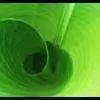-
Welcome to Celiac.com!
You have found your celiac tribe! Join us and ask questions in our forum, share your story, and connect with others.
-
Celiac.com Sponsor (A1):
Celiac.com Sponsor (A1-M):
-
Get Celiac.com Updates:Support Our Content
gluten-free Diet Helps, But Symptoms Still Present
-
Get Celiac.com Updates:Support Celiac.com:
-
Celiac.com Sponsor (A17):
Celiac.com Sponsor (A17):
Celiac.com Sponsors (A17-M):
-
Recent Activity
-
- MauraBue posted a topic in Gluten-Free Foods, Products, Shopping & Medications0
Have Tru Joy Sweets Choco Chews been discontinued??
Help! My 5 year old daughter just stopped eating dairy and gluten due to her EoE and Celiac. Her favorite candy in the world is tootsie rolls. I did some research, and it sounds like these are the only options for finding something similar, but I can't find them anywhere to actually purchase. Have they been discontinued?? Does anyone have another recommendation... -
- catnapt replied to catnapt's topic in Celiac Disease Pre-Diagnosis, Testing & Symptoms4
how much gluten do I need to eat before blood tests?
I wonder how long it usually takes and if it is dose dependent as well... or if some ppl have a more pronounced reaction to gluten than others thanks again for all the great info -
- suek54 replied to suek54's topic in Dermatitis Herpetiformis7
Awaiting dermatitis herpetiformis confirmation following biopsy
Wow KK, thank you so much for all your attached info. I had a very quick scan but will read more in depth later. The one concerning corticosteroid use is very interesting. That would relate to secondary adrenal insufficiency I think , ie AI caused by steroids such as taken long term for eg asthma. I have primary autoimmune AI, my adrenals are atrophied... -
- knitty kitty replied to suek54's topic in Dermatitis Herpetiformis7
Awaiting dermatitis herpetiformis confirmation following biopsy
Welcome to the forum, @suek54, I have Dermatitis Herpetiformis, too. I found taking Niacin B3 very helpful in clearing my skin from blisters as well as improving the itchies-without-rash (peripheral neuropathy). Niacin has been used since the 1950's to improve dermatitis herpetiformis. I try to balance my iodine intake (which will cause flairs... -
- suek54 replied to suek54's topic in Dermatitis Herpetiformis7
Awaiting dermatitis herpetiformis confirmation following biopsy
Thank you all for your advice and the dermatitis herpetiformis article. The latter made me realise I had stopped taking my antihistamine, which I will restart today. The Dapsone has cleared the rash entirely but I still get quite a bit itching, absolutely nothing to see though. I know its notoriously hard to clear and its still relatively early days for me...
-



Recommended Posts
Archived
This topic is now archived and is closed to further replies.